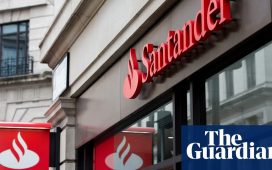The surge in bond yields that is sending government borrowing costs higher will only stop after a prolonged slump in stock markets, analysts at Barclays have warned.
Bond markets have rebounded slightly from a rout that sent UK 30-year gilt yields to their highest level since 1998 this week.
Stocks have struggled under the weight of soaring yields in the bond market. Yields – the return paid to buyers of the bonds – rise as the prices of bonds fall as investors demand higher returns.
Higher yields undercut stock prices by pulling investment away from stocks and into bonds as the returns appear more lucrative. Higher coupons also hit corporate profits and government debt by making borrowing more expensive.
Barclays analyst Ajay Rajadhyaksha indicated that the bond rout may not be over until a repricing of stocks, dubbed “risk assets”.
He said: “There is no magic level of yields that, when reached, will automatically draw in enough buyers to spark a sustained bond rally.
“In the short term, we can think of one scenario where bonds rally materially. If risk assets fall sharply in the coming weeks.”
He added: “The magnitude of the bond sell-off has been so stunning that stocks are arguably more expensive than a month ago, from a valuation standpoint.
“We believe that the eventual path to bonds’ stabilising lies through a further re-pricing lower of risk assets.”
5 things to start your day
1) ‘Baffling’ net zero policies risk damaging car industry, Sunak warned | Prime Minister accused of threatening market recovery after ‘confusing messaging’
2) Mike Lynch files legal challenge to have fraud case thrown out by US courts | Tech entrepreneur has long maintained that any case against him should be heard in Britain
3) Nearly 1,000 properties left in limbo as HS2’s northern leg axed | Government faces questions over fate of land and buildings bought for rail project’s second phase
4) Bankman-Fried’s lawyer defends him as ‘math nerd who didn’t drink’ as fraud trial begins | Crypto tycoon is accused of conspiracy, fraud, money-laundering and misappropriating funds
5) Customers risk ‘getting hurt’ if they apprehend shoplifters, says Tesco boss | Ken Murphy rejects policing minister’s calls for public to tackle rising thefts
What happened overnight
Asian shares advanced after a plunge in oil prices aided a recovery on Wall Street.
Benchmarks rose in Tokyo, Sydney, Seoul and Hong Kong. Chinese markets were closed for a holiday.
Market sentiment was helped by a $5 decline in oil prices on Wednesday. Lower energy costs would relieve inflationary pressures that have led central banks to keep interest rates high.
Japan’s benchmark Nikkei 225 jumped 1.5pc to 30,969.71. Sydney’s S&P/ASX 200 gained 0.5pc to 6,925.50, while South Korea’s Kospi added 0.8pc to 2,424.90. The Hang Seng index in Hong Kong gained 0.7pc to 17,321.16.
In energy trading, Brent crude, the international standard, gained 61 cents to $86.42 after falling from more than $91 on Wednesday.
Oil prices fell after the Energy Information Administration reported a 4.6m barrel increase in commercial petroleum products. Inventories of gasoline rose to above average.
Wall Street stocks ended higher after new data showed that US private payrolls increased less than expected in September.
The Dow Jones Industrial Average rose 127.17 points or 0.39pc to close at 33,129.55.
The S&P 500 finished 34.3 points or 0.81pc higher at 4,263.75, while the Nasdaq Composite added 176.54 points, or 1.35pc, at 13,236.01.










